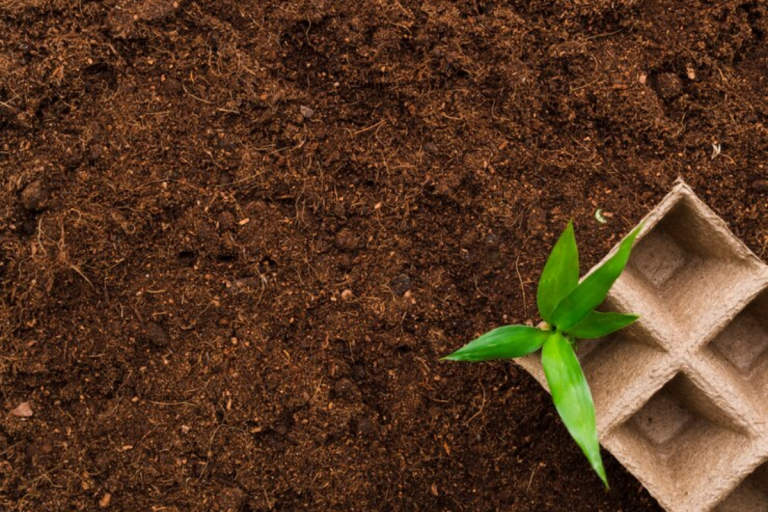Introduction
Soil organic matter is like nature’s hidden treasure that helps plants grow strong and healthy. It comes from things like dead leaves, plant roots, and tiny organisms breaking down into the soil. This special material plays a big role in making soil rich and fertile. It helps the soil hold water, keeps nutrients in place, and makes it easier for plants to get what they need to grow.
When soil organic matter is present, the soil becomes soft and crumbly, perfect for gardens and farms. It not only helps plants grow better but also protects the environment by reducing soil erosion and supporting sustainable farming. By understanding how soil organic matter forms and benefits the earth, we can keep our gardens green and our farms productive for years to come.
What is Soil Organic Matter?
Soil organic matter is a natural substance made up of things like dead leaves, roots, and tiny animals that break down in the soil. It’s like the “food” that keeps soil healthy and plants growing strong. When plants and animals die, they become part of the soil, turning into organic matter over time. This helps the soil stay rich and full of nutrients, making it easier for plants to grow. Organic matter also helps soil hold onto water, which is important for plants, especially during dry times.
The nature of soil organic matter is what makes it so special. It not only helps plants get the nutrients they need but also improves soil structure. This means soil becomes softer and less likely to break apart. Understanding soil organic matter is key to making our gardens and farms more productive, healthier, and better for the environment. It’s like nature’s way of giving back to the earth!
The Nature of Soil Organic Matter
The nature of soil organic matter is all about how it helps the soil stay healthy and full of life. Soil organic matter is made up of tiny pieces of dead plants, roots, and even small creatures that decompose over time. This natural material is what makes soil dark, rich, and full of nutrients. It acts like a sponge, holding water so plants can drink it up when they need it. The nature of soil organic matter also helps soil stay loose and crumbly, making it easier for roots to grow deep and strong.
This special organic matter plays a key role in soil formation. It helps tiny particles stick together to form soil that won’t wash away easily. By understanding how soil organic matter works, farmers and gardeners can improve soil fertility, making crops grow better and healthier. This way, we can protect the environment and enjoy bountiful gardens and farms for years to come.
Read More: A Guide To The Different Types Of Field Peas
The Role of Soil Organic Matter in Soil Formation
Soil organic matter plays an important role in how soil forms over time. It acts like a glue that helps tiny soil particles stick together, creating a soft, crumbly texture that plants love. When leaves, roots, and other natural materials break down, they turn into organic matter. This organic matter helps build layers in the soil, which is important for soil formation. It also improves soil structure, making it stronger and less likely to wash away during heavy rains.
The role of soil organic matter in soil formation is also about helping soil hold onto nutrients. As organic matter breaks down, it releases nutrients that plants need to grow healthy and strong. Without soil organic matter, the ground would be hard and less fertile, making it difficult for plants to thrive. By increasing the amount of organic matter in the soil, we can create richer, healthier soil that is perfect for gardens, farms, and the environment.
Enhancing Soil Fertility Through Organic Matter
Enhancing soil fertility through organic matter is like giving plants a healthy meal to help them grow strong. When gardeners and farmers add organic matter, like compost, decayed leaves, or manure, to the soil, it boosts the nutrients that plants need to grow. This organic matter acts like a natural fertilizer, slowly releasing important nutrients like nitrogen, phosphorus, and potassium into the soil. It also helps the soil hold water, which is important for plants, especially in dry weather.
The presence of organic matter improves soil texture, making it soft and easy for roots to spread. It also supports the growth of tiny soil organisms, like earthworms, which help break down organic materials even further. By enhancing soil fertility with organic matter, we can grow healthier vegetables, flowers, and crops without using too many chemicals. This natural way of improving soil helps the environment and keeps gardens and farms healthy for the future.
Methods to Increase Soil Organic Matter
There are simple and natural methods to increase soil organic matter, which helps make soil healthier and more fertile. One of the best ways is to use compost made from kitchen scraps, grass clippings, and dried leaves. Adding compost to the soil improves its texture and provides nutrients that plants need. Another great method is planting cover crops, like clover or rye, which protect the soil and add organic matter when they decompose.
Mulching with leaves, straw, or grass also helps keep soil moist and breaks down over time, enriching the soil. Farmers and gardeners can also reduce tilling (digging up the soil) because it helps keep organic matter locked in the soil. Using natural fertilizers, like manure or fish emulsion, boosts soil health without harsh chemicals. By following these methods, we can increase soil organic matter, making gardens and farms more productive and sustainable for future generations.
The Environmental Impact of Soil Organic Matter
Soil organic matter has a big impact on the environment by helping to keep our planet healthy. It acts like a sponge, soaking up carbon dioxide from the air and storing it in the soil. This helps reduce greenhouse gases, which can slow down climate change. When soil is rich in organic matter, it also holds more water, reducing the risk of floods and keeping plants hydrated during dry times.
Healthy soil full of organic matter prevents erosion by keeping soil particles stuck together, so they don’t wash away during heavy rains. This is important for protecting rivers and oceans from getting polluted. Additionally, soil organic matter supports tiny organisms like earthworms and bacteria that break down dead plants, making the soil even healthier. By increasing soil organic matter, we can create a better environment, grow stronger crops, and protect our planet for the future.
Conclusion
In conclusion, soil organic matter is a powerful natural resource that plays a vital role in making soil healthy and fertile. By understanding its nature, we can see how it helps form soil, improves its texture, and boosts its ability to grow strong plants. Adding organic matter, like compost and mulch, helps soil retain water, provide nutrients, and support plant growth. It also plays a key part in protecting the environment by reducing soil erosion and storing carbon, which helps combat climate change.
Farmers and gardeners can use simple methods to increase soil organic matter, making their crops healthier while caring for the planet. The benefits of organic matter go beyond just soil fertility; it helps create sustainable gardens and farms that will last for years to come. By taking care of the soil today, we ensure a greener, healthier world for the future. Let’s all do our part to enrich our soil and protect the environment!

